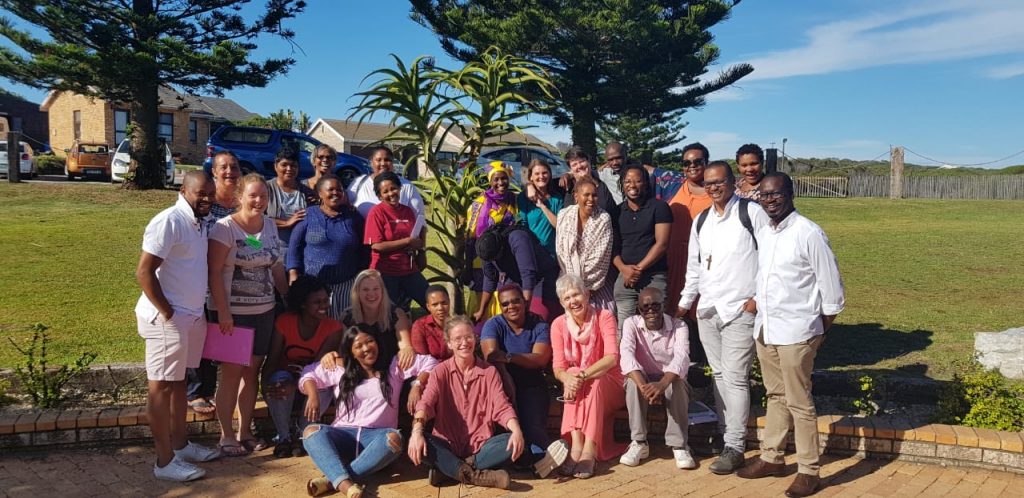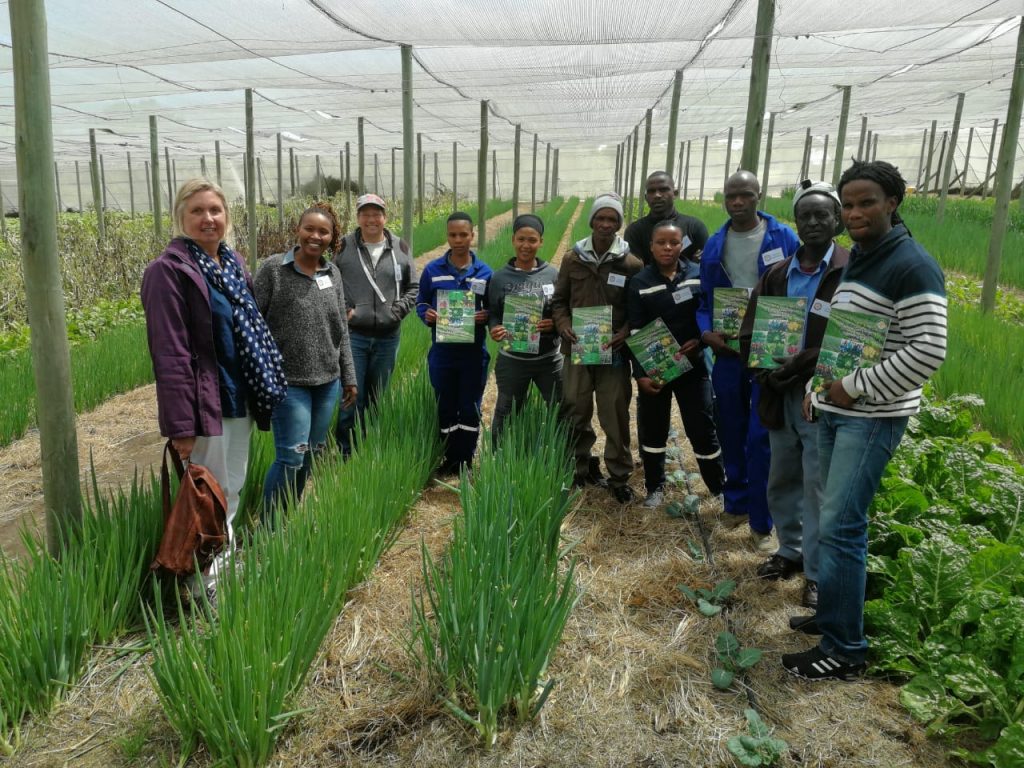Reflecting on our footprints – capturing the Ikhala Trust’s journey over the last 20 years
05 Feb 2020

Graduates of Ikhala’s project management and organizational development course
During the Ikhala Trust’s Asset Based Community Driven Development (or ABCD) Festival held in November, our lead facilitator, Dena Lomofsky, kept reminding us that what we write about should be something even our grandmothers would understand – take out all of the jargon and keep it simple, so it appeals to everyone. This is never easy for those of us who love jargon, but this same sentiment was also shared this week in Johannesburg at an ABCD Indaba with government officials, where it became clear that language can alienate people and put them off.
Telling our story
So, mindful of this, at Ikhala Trust, a small community grantmaker operating in the Eastern Cape Province, South Africa we love using metaphors, symbols and analogies in order to make sense of the work we do with many different people across the Eastern Cape, South Africa and internationally.
Even our identity incorporates metaphor. Ikhala – an isiXhosa word for Aloe – is a medicinal plant indigenous to South Africa and especially the Eastern Cape. Our Province is listed as the second poorest in South Africa with a population of just under 7 million people, 75% of which is rural. It’s also the Province with one of the highest numbers of people dependent on social grants/welfare, which is often the only source of income in a household. Like the aloe that represents us, we see our role as providing relief and comfort.
We have, of course, also relied on quite a few metaphors and symbols as we have pulled together the story of our 20 year journey, considering our “footprints.” How else do you begin to put into words the convergence of relationships that have emerged, either organically or formally, and which have enabled us to do the work we do for over 20 years: advocating and lobbying for social and economic transformation in the communities we work with, by using a strengths based approach to development.
How we get the work done
We start with what we have and build on what we know, appreciating and valuing the capacities and abilities of individuals in communities who are taking charge of their own development and doing it for themselves with very little external help. Our core purpose has been to provide small grants to small organizations who are using and growing their assets, and this has not changed with time.
Ikhala’s story is significant in that at the heart of our grantmaking practice is the support for small, formal or informal community organizations or individuals who are harnessing their available assets i.e. human, social, physical, natural and economic, to bring about a meaningful change in their own household and the surrounding communities. They are able to recognize the value of what they are able to offer, and work to their strengths. A grant from Ikhala Trust is seen as a co-investment in what they are already actively doing, and the money may just assist them to take another step forward to grow their assets. Working with what is strong and not what is wrong is what assists in unlocking and unblocking human potential to drive social change.

Graduates of the “Farming God’s Way” garden workshop
Focussing on the strengths or assets in communities – which we believe every community in the world has – is a critical starting point. Looking at the glass half full and not half empty means that people start focussing on what they can do, and not what they can’t do. Our support through grantmaking and capacity building encourages people to recognize their gifts, talents and skills and how they can put these to use.
Some lessons learned (like small is the new big!)
Over the years, Ikhala Trust has invested significant resources in communities, though always tapping into human and social assets to ensure that we respect the aspirations of individuals in communities. We have carefully ensured that we do not try to enforce our own development agenda. Holding this tension is not always easy, however, and it is critical that we remember that the individual and community are at the heart of our practice as a community grantmaker.
Strengthening human and social assets is the starting point and the rest follows. Creating spaces for convergence of all sectors is essential and at Ikhala Trust we have tried to do all of these things with some success…small is the new big and can proliferate and spread into circles and spaces of influence. Always remember that money follows good things.
We hope that you will enjoy our story and the key elements of the Ikhala model that we have captured as a resource to share with other community grantmakers and development practitioners around the world. Our journey is continuous and we have not yet arrived. As we continue to meet fellow travellers across the globe who are also committed to doing the same thing, our network and footprint grows.
By: Bernie Dolley, Director & Ninnette Eliasov, Associate
Please click here to read Expanding the footprint: The Ikhala Trust story or the abridged paper Footprints: How a community grantmaker shifts the power (The case of Ikhala Trust, South Africa).


Hofmeyr Hugs of Hope just love being part of Ikhala’s story, thank you for trusting us with your footprint, and how precious that members of Hofmeyr Hugs of Hope feature in both cherished photographs that is shared on this page. Congratulations on 20 years of enriching lives in the very poor platteland, where we learn to really dig deep into our own selves to find our assets, to assist our communities to carry on, and to teach them to survive on what they have to offer. After only 3 years with Ikhala, we have become much wiser with regards to… Read more »
A holistic approach to developing communities. Thank you Ikhala Trust for all the consistent hard work you put in to help South Africa grow. In the midst of it all there are positive stories to tell. Keep up the good work. Partnering in asset based community development is much more positive and have a more healing effect on communities. The end result is always to see people have the ability to stand on their own. I applaud you.